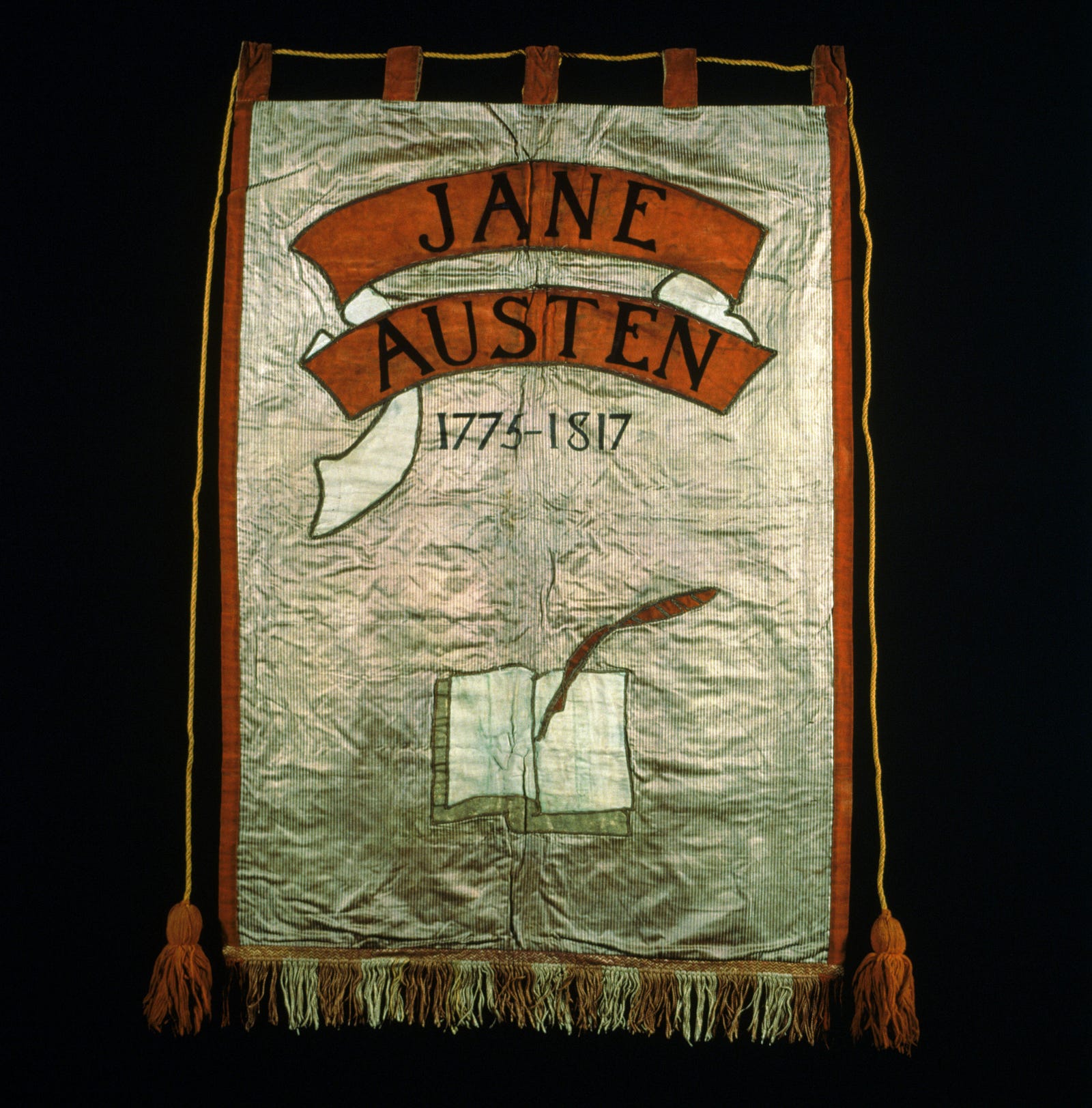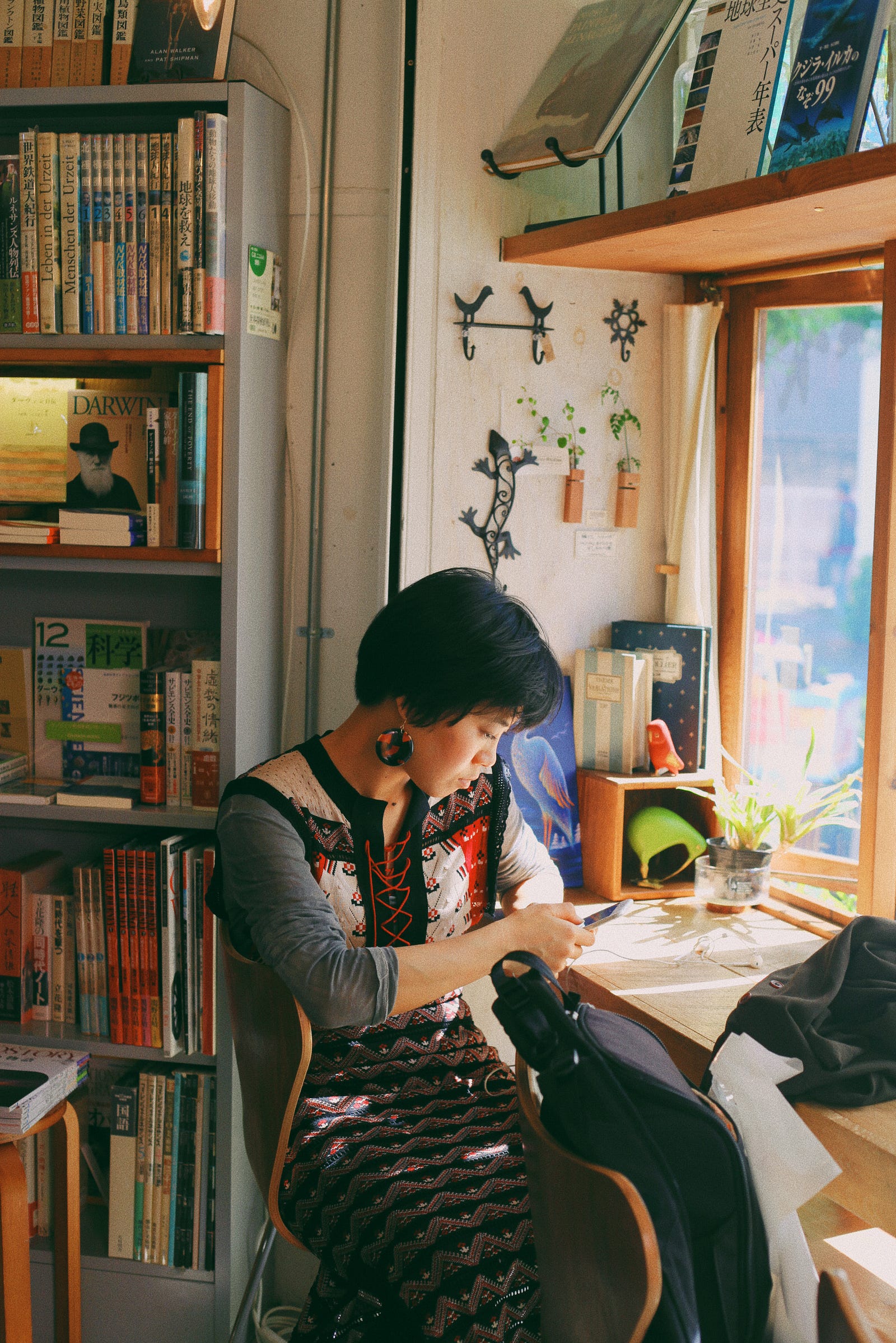Literature, Intimacy & Connection
Posted by Bijal Shah on
Literature affords us, familiar friends, through the silent passage of words — it forges our connection with fictional and real-life characters recreating the experience of an authentic friendship — with friends who are almost more perfect than the ones in real life. Partly this is owed to the fact that we see the character as they are — there’s a level of intimacy experienced that often feels grander than that with a close family member or friend due to the open and transparent nature of the narrative and the fact that we have uninterrupted access into the mind and emotions of the characters.

There’s no more a striking example of this than Anne Elliot’s character in Jane Austen’s lesser-known “Persuasion”.
“The last few hours were certainly very painful,” replied Anne, “but when pain is over, the remembrance of it often becomes a pleasure. One does not love a place the less for having suffered in it unless it has been all suffering, nothing but suffering”

These words resonate with us — how quickly we forget the pain of past suffering and muse at it with reductive and flippant glee as something that happened, its significance shed and less meaningful to us now — we often look back at it with fond memories, as though it was a small footnote. We connect with the author over her astute observations of life, delighting over this insight. On the other hand, if we’ve never experienced such feelings of pain and suffering, we feel enlightened and empathetic, vicariously exploring these feelings through the author’s experience. We have an affinity for Anne, as though we know her. Similar to the celebrity effect, where the familiarity of a favourite celebrity through our conscious exposure to them, makes us feel that we know them personally.
In a similar vein, George Orwell’s Animal Farm and Margaret Atwood’s The Handmaid’s Tale echo the horrors of a person who has experienced injustice or cruelty at the hands of society (such as the holocaust or modern-day genocides). These books allow the wider public to ‘virtually’ experience another person’s reality through empathetic reading so that we begin to feel that we know their pain, their suffering, their experience. They become life-like in our eyes and we connect with them through the painful emotions that they bring up in us.
Does this connection sometimes substitute for the absence of real-life connections? As the pandemic of loneliness devours millions across the world, the answer is often a resonant yes amongst my clients. They would rather curl up with a book than try and make amends with an estranged relative or a once-close friend they have now lost touch with. With the book-in-hand, they feel satisfied, their thirsting desire for connection topped up.
Reading has always been a great literary cure for loneliness. This is nowhere more notable than in Japan where a third of all households live alone. More 65-year-olds-and-over live alone in Japan than anywhere else in the world. 30% of men and women will never marry by the year 2030. With such alarming statistics, it’s no surprise that a new genre in literature is emerging: one that celebrates and praises the solitary state. With many books written on the power of loneliness, these are fast climbing the bestseller ranks and showcasing loneliness as a form of freedom, liberation and independence. The standalone message of these books seems to be: stop fearing loneliness — embrace it and you’ll feel empowered.

The most popular of all books is Kodoku no Susume by Hiroyuki Itsuki, which translates to “Advice for the Lonely”. Itsuki focuses on humans becoming lonelier in older age; advising that this should be embraced rather than feared. A buddhist scholar, Itsuki, almost promotes the Buddhist and Jain concepts of detachment — removing all attachment including those to family and friends, to remove all suffering that is caused through the death or loss of a loved one. According to Itsuki, embracing this detachment empowers us, removing our fear of being lonely; and to some extent leaves us feeling fulfilled.
A female writer, Sayaka Murata, has written several award-winning books centred on loneliness including Shiro-oro no machi no, sono hone no taion no (Of Bones, of Body Heat, of Whitening City) winner of the Yukio Mishima Prize in 2013 and more recently the Convenience Store Woman which won the 2016 Akutagawa Award. Many of her characters are lonely people who describe their observations, feelings and desire to exist in solitude. The characters revolve around convenience store customers (Murata works at one of Japan’s many convenience stores) who prefer to eat or shop alone. She eloquently depicts these colourful characters and why they choose this path, shying away from the judgement of society who expects the opposite of them, refusing to understand their preferences. Strangely enough, this book and Murata’s desire for a more solitary life has resonated with readers and clients near and far in both the western world and the eastern one — it begs the question as to whether society, in general, is headed this way and that what is happening in Japan is simply a sign of what might happen across the world.
As a bibliotherapist, I’ve observed that the practice of reading heals us through the intimacy, connection and the feeling of being understood that we are vicariously immersed in — connecting us with people that we would not otherwise connect with (be they fictional or real), extending our empathetic capabilities, and safely submerging us into a virtual reality that can often feel more ‘real’ than the one we currently reside in.
A big hello and thank you for reading! Passionate about literature, psychology, and life I launched Book Therapy as an alternative form of therapy using the power of literature. I create reading lists/personalised book prescriptions based on your individual needs, this is my signature personalised reading service. My book recommendations have featured in The Guardian, NBC News and Marie Claire. You can also check out Book Therapy’s free reading lists and A- Z of book prescriptions (covering both fiction and non-fiction). These suggest books based on your existing life situation (e.g. anxiety, job change, relationship heartache) as well as interests (e.g memoir, historical fiction, non-fiction, crime etc). There’s also a Children’s A — Z of Book Prescriptions. Feel free to check out the blog for more literary gems. There’s also a post on my personal story of how I entered the world of bibliotherapy and book curation. I train mental health professionals, librarians, teachers as well as readers on using bibliotherapy in their own work through our online Bibliotherapy, Literature and Mental Health course. And if you’d like to connect, email me at bijal@booktherapy.io or www.booktherapy.io.
Book Therapy is a participant in the Amazon EU, US and Canada Associates Programme, an affiliate advertising programme designed to provide a means for sites to earn advertising fees by advertising and linking to Amazon.co.uk, Amazon.com and Amazon.ca
